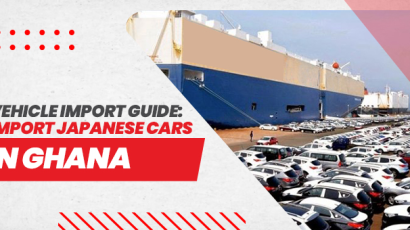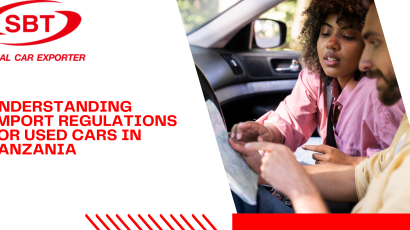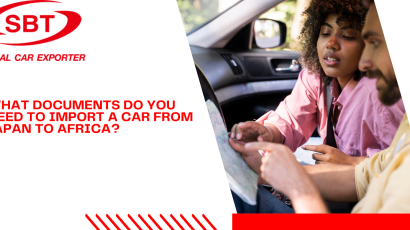
Japanese cars are a top choice for buyers across the globe, including Africa. However, if you are considering importing a Japanese car into countries like Zambia, Kenya, Nigeria, or South Africa, it is crucial to understand the import duties and fees involved. Therefore, by gaining a clear understanding of these charges, you can avoid unexpected costs and ensure a smooth process. This beginner’s guide breaks down the steps and factors you need to consider when calculating these duties so you can make informed decisions with confidence.
Understanding Import Duties: What Are They?
Import duties refer to taxes imposed on goods brought into a country from abroad. For vehicles, these duties are calculated based on several key factors, such as the car’s value, age, engine size, and country of origin. Notably, African countries use these duties as a way to generate revenue while simultaneously protecting local industries.
Therefore, knowing the applicable taxes and fees beforehand is essential. However, if you fail to comply, you may face penalties, delays, or even confiscation of your vehicle. Therefore, understanding these duties in detail is the first step toward a successful car importation process.
Key Factors Affecting Import Duties
1. Vehicle Value and Age
One of the most important factors influencing import duties is the customs value of the car. Typically, this value is based on the CIF (Cost, Insurance, and Freight) value, which includes:
Cost: The purchase price of the car in Japan.
Insurance: The cost of insuring the vehicle during shipping.
Freight: The shipping cost to the destination port.
Additionally, it is crucial to remember that in many African nations, older automobiles could be subject to higher duties. The reason behind this is because governments frequently try to deter the entry of older, less eco-friendly vehicles.
2. Engine Size
Another critical factor is the engine capacity of the car. Vehicles with larger engines typically attract higher taxes due to their increased environmental impact and higher fuel consumption.
3. Country-Specific Regulations
In addition to vehicle value and engine size, different countries have their own unique regulations and tax structures. For instance, the import duties for Japanese cars in Zambia are not the same as the car import fees in South Africa. As a result, it is vital to understand the specific requirements of your destination country.
How to Calculate Import Duties
Import Duties Japan Cars Zambia
The following expenses must be taken into account when importing a Japanese vehicle into Zambia:
Customs Duty: This is calculated as a percentage of the CIF value, usually ranging between 25% and 30%.
Excise Duty: The rate varies depending on the engine size:
Engines below 1500cc: Approximately 20%.
Engines above 1500cc: Between 30% and 40%.
Value Added Tax (VAT): A standard rate of 16% applies to the total cost, which includes CIF, customs duty, and excise duty.
Carbon Emission Surtax: An additional charge that depends on the vehicle’s age and emission levels.
Example Calculation: For instance, if a car’s CIF value is $10,000, and it has a 1600cc engine, the total import duties might be calculated as follows:
Customs Duty: $10,000 × 25% = $2,500
Excise Duty: $10,000 × 30% = $3,000
VAT: ($10,000 + $2,500 + $3,000) × 16% = $2,440
Total Duties: $2,500 + $3,000 + $2,440 = $7,940
Overall, by understanding these calculations, you can budget accurately and avoid surprises.
Calculating Japanese Car Taxes in Kenya
In Kenya, the Revenue Authority (KRA) employs the Retail Selling Price (RSP) to determine the value of imported vehicles. Therefore, the main costs you need to consider include:
Import Duty: 25% of the RSP.
Excise Duty: Based on engine size:
Below 1500cc: 25%.
Above 1500cc: 35%.
VAT: 16% of the total cost, including CIF, import duty, and excise duty.
Railway Development Levy (RDL): 2% of the CIF value.
Example Calculation: If a car’s CIF value is $8,000 and it has a 2000cc engine:
Import Duty: $8,000 × 25% = $2,000
Excise Duty: $8,000 × 35% = $2,800
VAT: ($8,000 + $2,000 + $2,800) × 16% = $2,176
RDL: $8,000 × 2% = $160
Total Duties: $2,000 + $2,800 + $2,176 + $160 = $7,136
All in all, clearly understanding these steps ensures you are fully prepared.
Import Duties in Nigeria
Nigeria is known for imposing some of the highest car import duties in Africa. However, this is largely an effort to encourage local automotive production. Therefore, the charges include:
Customs Duty: 35% of the CIF value.
Levy: An additional 35% of the CIF value, bringing the total to 70%.
VAT: 7.5% of the total cost, including CIF, customs duty, and levy.
Example Calculation: For a vehicle with a CIF value of $12,000:
Customs Duty: $12,000 × 35% = $4,200
Levy: $12,000 × 35% = $4,200
VAT: ($12,000 + $4,200 + $4,200) × 7.5% = $1,500
Total Duties: $4,200 + $4,200 + $1,500 = $9,900
However, as you can see, these charges significantly increase the total cost.
Car Import Fees in South Africa
Lastly, car import fees in South Africa are relatively straightforward but still involve several components:
Customs Duty: 30% of the vehicle’s value.
Ad Valorem Duty: This is based on the car’s value and engine size, typically ranging from 0.75% to 20%.
VAT: 15% of the total cost, including CIF and customs duty.
Environmental Levy: Additional charges may apply for older vehicles.
Example Calculation: If a car’s CIF value is $15,000:
Customs Duty: $15,000 × 30% = $4,500
Ad Valorem Duty: $15,000 × 10% = $1,500
VAT: ($15,000 + $4,500 + $1,500) × 15% = $3,075
Total Duties: $4,500 + $1,500 + $3,075 = $9,075
Thus, knowing these fees in advance will help you prepare financially.
Tips for Importing Japanese Cars to Africa
Research Country-Specific Regulations: Take the time to familiarize yourself with the customs laws and tax structures of your destination country.
Use an Import Agent: Hiring a professional can simplify the process and help you avoid costly mistakes.
Verify the Vehicle’s Compliance: Ensure the car meets local standards, such as emissions and safety requirements.
Prepare All Necessary Documents: These include the bill of lading, invoice, and certificate of roadworthiness.
Budget for Additional Costs: Besides duties, consider other expenses like port handling fees, registration, and insurance.
Conclusion
In conclusion, importing a Japanese car to African countries like Zambia, Kenya, Nigeria, or South Africa involves multiple steps and costs. Therefore, by understanding the import duties and associated fees, you can plan effectively and avoid surprises. So, whether you are calculating import duties for Japanese cars in Zambia or navigating car import fees in South Africa, thorough research and preparation are key. With this guide, you are well-equipped to make an informed and confident purchase.











